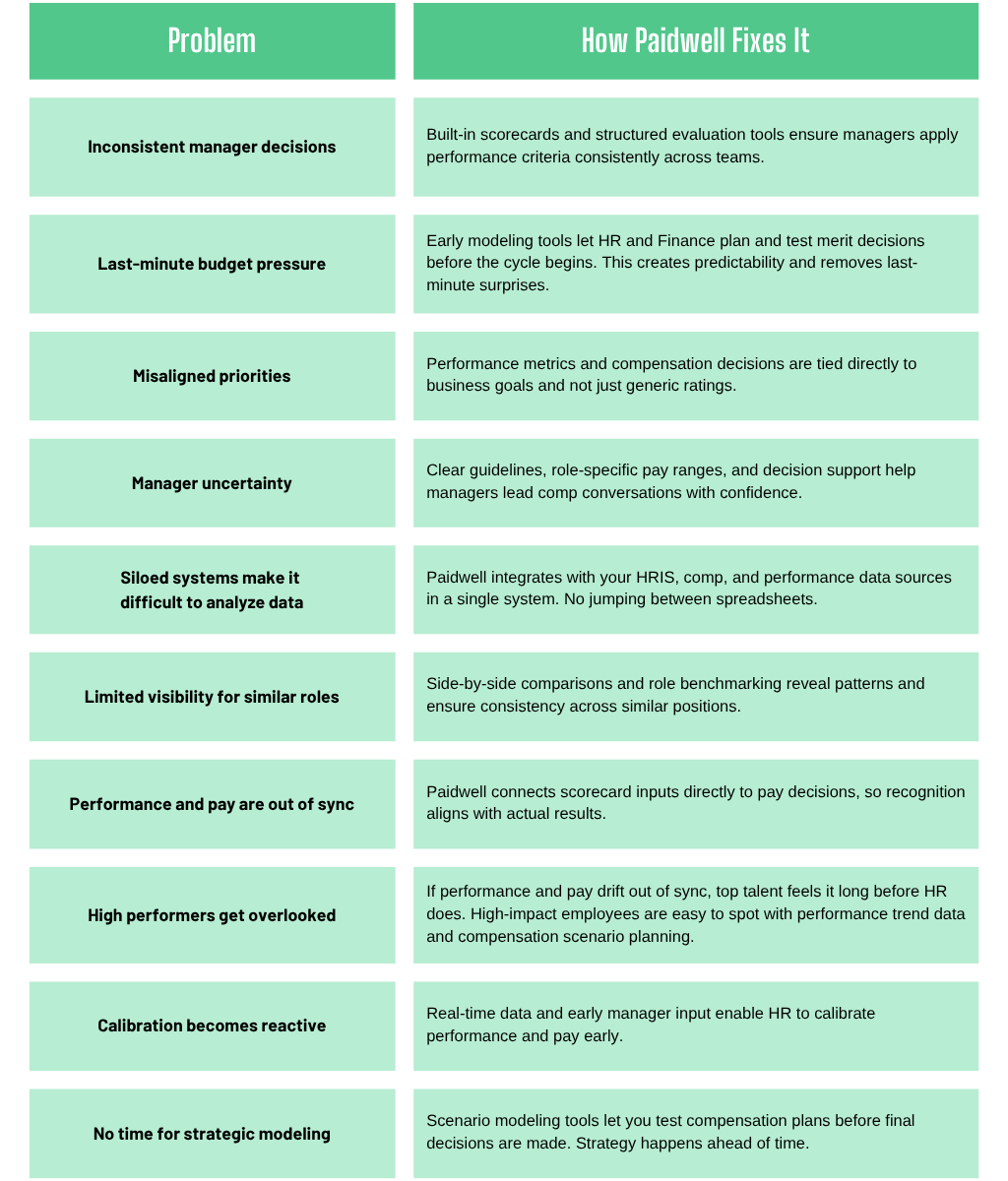Fine-Tune Your Merit Cycle to Drive Performance
For many companies, the merit cycle runs pretty smoothly. Ratings are submitted, budgets get reviewed, and pay adjustments are finalized. But as the business grows and teams become more complex, many HR leaders start to wonder: Is our comp process still working for the company we have now, or is it built for the one we were two seasons ago?
It’s a bit like going from coaching a high school team to managing a pro football operation. Early on, instincts and quick decisions work. Once both headcount and expectations climb, you need structure, alignment, and tools to keep everything running as one team.
The merit cycle works the same way. What used to be a quick check-in becomes something more powerful. It shapes how managers lead, how performance is defined, and what actually gets reinforced across the org. The merit cycle is where performance signals either get sharpened or blurred.
One thing teams rarely say out loud: The merit cycle is one of the only times the whole company pauses to ask, “What does great work look like here?” The answers you reward become the real playbook for how your organization operates.
The Merit Cycle is a Strategic Moment
A merit cycle is not just a pay event. It’s one of the few moments each year when performance and compensation are reviewed side by side, across every team, every level, and every function. That makes the merit cycle one of the strongest levers you have to reinforce what the business values most.
But if your systems weren’t built to support scale, that alignment can start to slip. The issue is rarely strategy. It is usually that the tools and structure supporting it are no longer calibrated to your org’s complexity.
What Forward-Looking Teams Are Doing
The most effective teams don’t treat the merit cycle as a checklist. They use it as a moment to focus, align, and move the business forward. The shift isn’t about changing your philosophy. It’s about having the right tools to put it into action.
When those tools are in place, compensation decisions tie back to real business goals. Managers have the structure and support to lead performance conversations with confidence. Planning happens early, not under pressure. And HR, Finance, and leadership stay on the same page.
Leaders choose Paidwell because they want pay decisions grounded in real performance that hold up under pressure, not just during a merit cycle, but throughout the year.
If you want managers to lead compensation conversations with clarity and confidence, book a demo. See how Paidwell helps teams plan smarter, lead better, and execute a clear, competitive compensation strategy.
10 Common Merit Cycle Problems and How Paidwell Solves Them
Most teams run into the same friction points during merit season. Paidwell removes that friction so decisions are faster, clearer, and tied to real performance.

